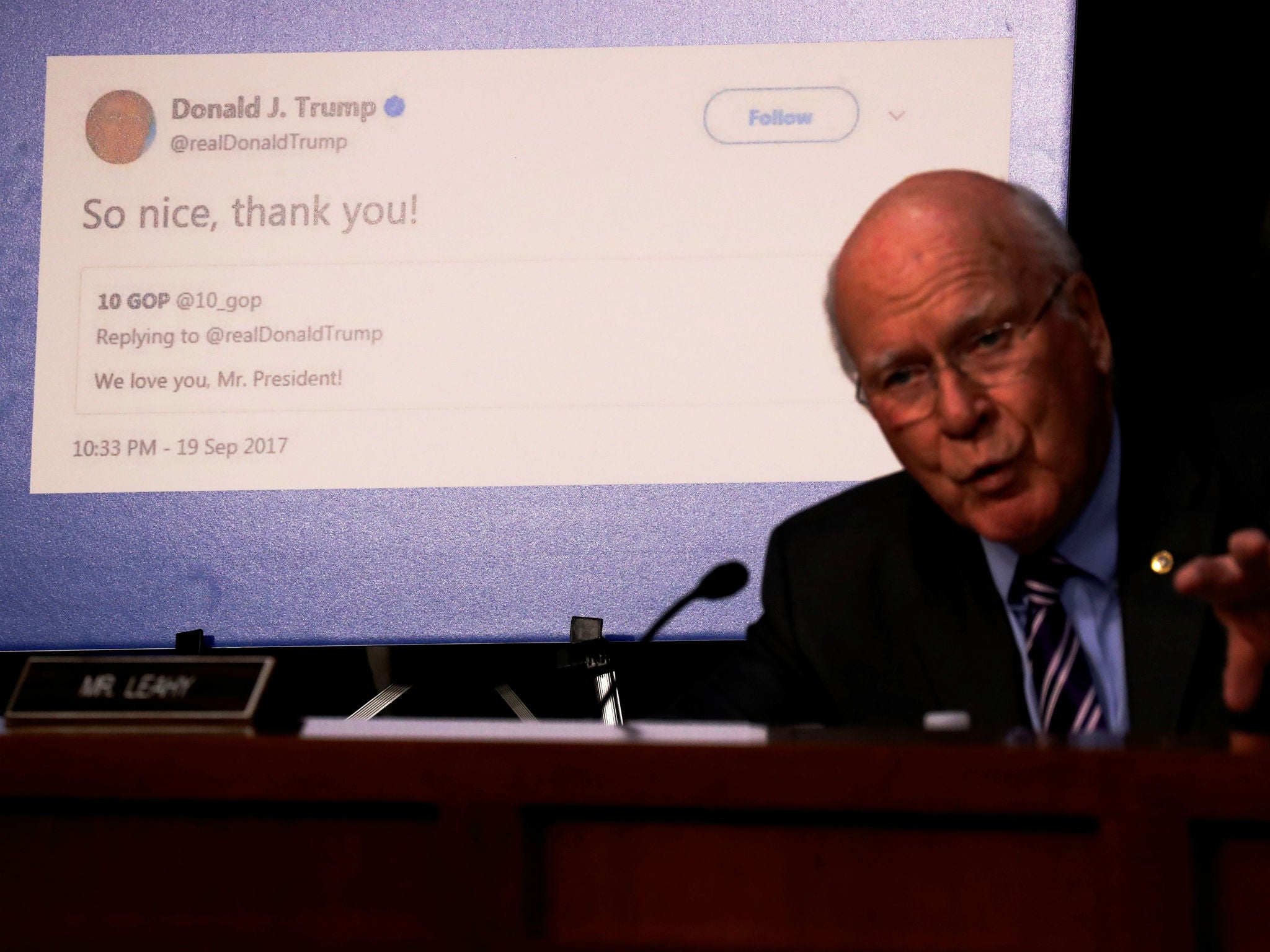Russian Twitter trolls downplayed bad Trump news while attacking Clinton, analysis reveals
Accounts involved consistent pattern of seeking to suppress news that could hurt the president

Russian Twitter accounts operating during the 2016 election regularly sought to insulate Donald Trump from damaging news and highlight criticisms of Hillary Clinton, an analysis has found.
Social media’s role as a vessel for Russian election meddling was the focus of high-profile hearings on Capitol Hill last week, where Congress members grilled tech executives about the extent of Russian efforts. Twitter shared a list of hundreds of Russian operatives, which was later released to the public.
An Associated Press analysis of those accounts and an archive of their since-deleted tweets found a consistent pattern of seeking to suppress news that could hurt Mr Trump by redirecting attention to Ms Clinton and her alleged wrongdoing.
American intelligence agencies have concluded that the Russian government’s cyber campaign displayed “a clear preference” for Mr Trump, seeking to boost his “election chances when possible by discrediting Secretary Clinton and publicly contrasting her unfavorably to him”.
The AP’s analysis shows Russian accounts doing just that.
Soon after the leak of a tape in which Mr Trump bragged of lewd acts against women, a Russian operative sought to underplay the story and redirect attention “how Hillary defended a rapist” — a reference to a 1975 case in which a 27-year-old Ms Clinton defended a man accused of rape on behalf of a University of Arkansas legal aid clinic.
After Mr Trump disavowed the “birther” movement claiming Barack Obama was not born in the US - an idea he had actively promoted - Russian accounts echoed his claim that Ms Clinton originated the conspiracy theory.
Russian operatives also sought to highlight news that could undermine Ms Clinton’s chances, the AP found. Activity surged as Wikileaks released hacked emails from Clinton campaign chairman John Podesta, for example. Intelligence agencies have said Russian operatives were behind hacks targeting Democrats, though Wikileaks founder Julian Assange has said he did not receive the emails his organisation published from Russia.
Join our commenting forum
Join thought-provoking conversations, follow other Independent readers and see their replies
Comments
Bookmark popover
Removed from bookmarks